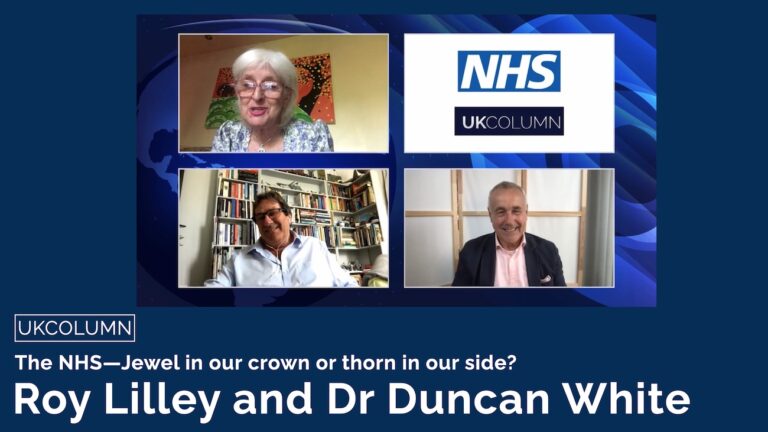Has the National Health Service quietly disappeared without anyone noticing? In 2023, will the UK have a fair, safe and accessible healthcare system? Have we lost trust in “NHS Trusts”? In 2020, the UK Government told us all to “Protect the NHS”. In 2023, we ask: is the Government protecting the NHS, protecting NHS staff and protecting patients? With staff leaving the NHS in droves, leaving over 100,000 vacancies, is it time to rethink the model? Should we abandon the NHS model and switch to local health services?
The NHS is Britain's jewel, a system regarded by Brits as a national treasure and envied around the world. But is it really so? Gone are the days of doctors in white coats, nurses in starched uniforms, immaculate wards filled with flowers, bowls of fruit and open windows. Does the NHS have a future? Nursing correspondent Debi Evans joins former UK column interviewees Roy Lilley and Dr Duncan White for a candid conversation.
Roy Lilley is a health policy adviser, former chairman of Homewood NHS Trust in Surrey and a former Mayor of the City. Roy Guardian, The Sunday Times and The Daily TelegraphAs a policy advisor and visiting fellow at Imperial College London, he was instrumental in establishing the School of Health Service Management at the University of Nottingham and was a founder member of the Federation of NHS Trusts, which today comprises NHS Union.
Dr Duncan White is a nursing and care systems consultant who challenges the notion of privatising the NHS. He started his career as a registered nurse and has progressed through the ranks to senior roles in acute care and psychiatry. He has worked in healthcare both at home and abroad, giving him extensive experience and knowledge of global healthcare systems. In the UK public sector he has also worked for the Department of Health and Social Care, the Department for Business, Innovation and Skills, the Care Quality Commission and Skills for Care.
Currently, the NHS is one of the world's largest employers, employing 1.26 million full-time equivalent staff. In 2021/22, the Department of Health and Social Care spent £190 billion on healthcare, including ambulance services, hospital services, mental health and community care. A single ambulance visit in the UK costs £367 with hospitalisation and £276 without. A nine-minute GP consultation costs the NHS £42, while an appendectomy costs £3,409. A hip fracture can cost between £2,092 and £6,797, depending on complications.
As of March 2022, there are around 140,000 doctors, 40,000 managers and 350,000 nurses working in 215 NHS trusts and 10 ambulance trusts. There are 141,960 consultant-led beds (space for inpatient care). However, it should be noted that the number of hospital beds in England, the largest of the UK's four NHS systems, has halved over the past 30 years.
An average day in the UK in 2022:
- 1.2 million people will see a GP
- 260,000 outpatients will receive medical treatment
- 37,000 people called the emergency number 999 for health reasons
- 44,000 people will visit the emergency department, 25% of whom will be hospitalized.
- 675 patients admitted to intensive care units
(sauce: King's Fundan NHS affiliated think tank)
The NHS is in collapse. What happens next? How do we rebuild it? Do we pump more money into an already broken system, or do we hold off and start from scratch, perhaps with a new model? Bürzorg Model (It means “neighbourhood care” in Dutch and is being introduced in the US.) Would it work in the UK?
The National Health System is unique to the UK and currently houses the largest database in the world. If the NHS is truly the gold standard model, one might ask why other countries have not adopted it. Addiction is hard to break. Are the British public obsessed with how their national treasure has evolved into a national monster? Should we revisit the 2008 survey? Darzi review?
The interview also covers how COVID-19 has affected the NHS, its staff and patients. Increased illness What changes are occurring among NHS staff? Is it due to Covid, long Covid or fatigue? Or is there another cause that no one wants to talk about – Covid vaccination injury? Difficult conversations need to be had from different perspectives. The UK Column thanks both Dr Duncan White and Roy Lilley for their honesty, openness, willingness to debate and to listen to different points of view. There is much more to discuss and we look forward to welcoming them both back for part two.


